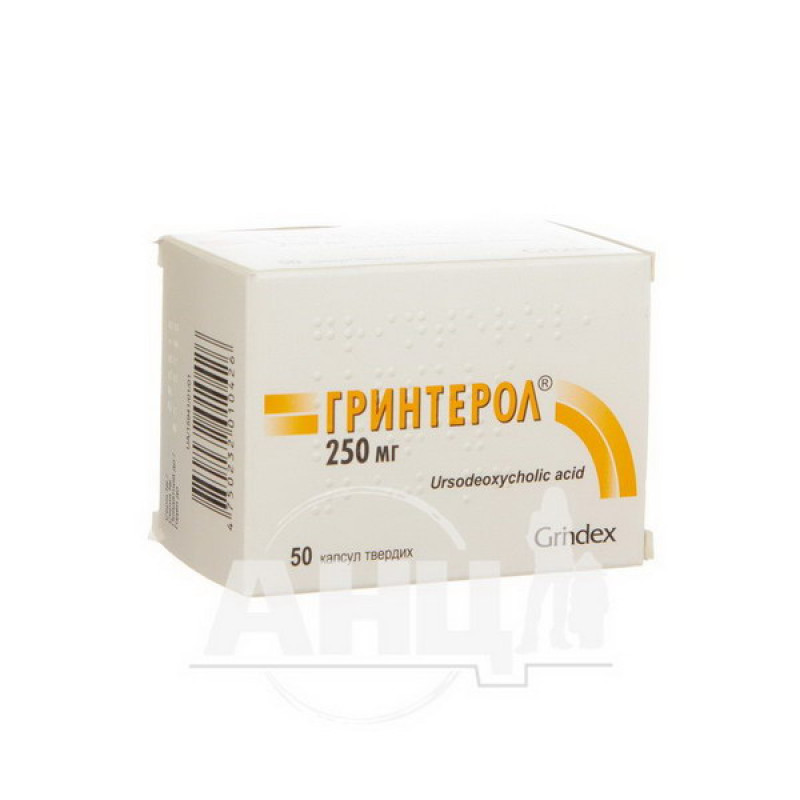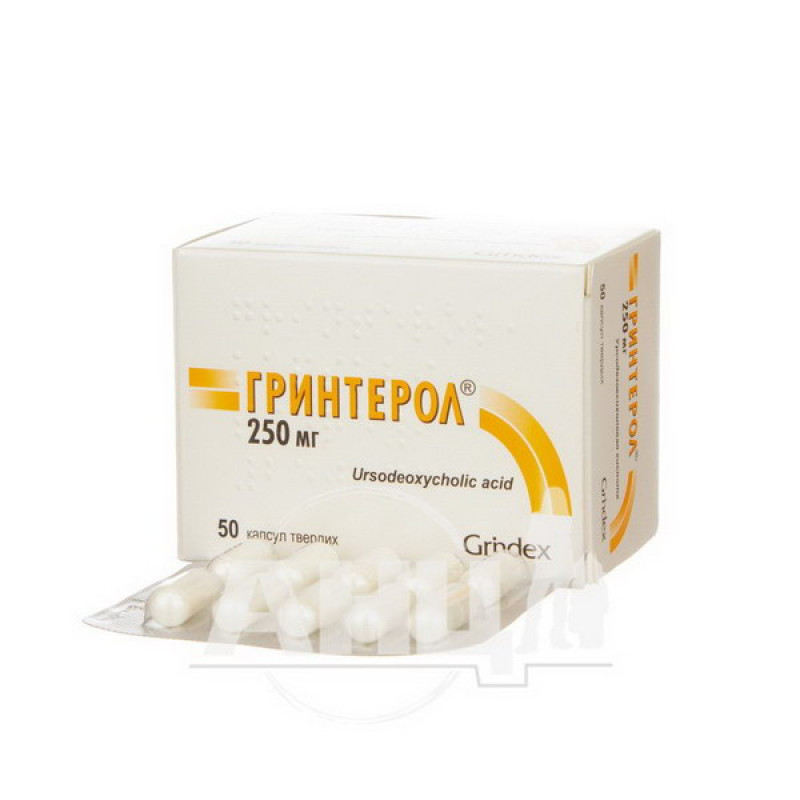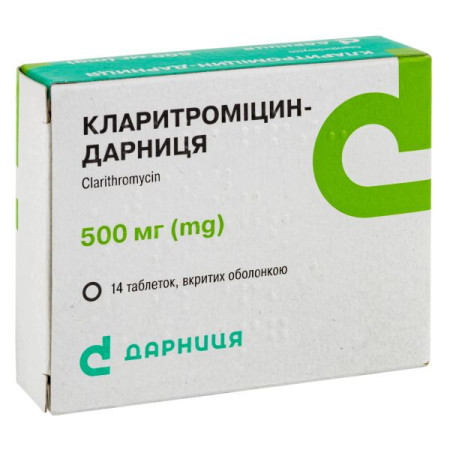Grinterol hard capsules 250 mg blister No. 50

Grinderol capsules are used for the following indications:
Dissolution of radiopaque cholesterol gallstones up to 15 mm in diameter in patients with a functioning gallbladder, despite the presence of gallstone(s). Treatment of biliary reflux gastritis. Symptomatic treatment of primary biliary cirrhosis (PBC) in the absence of decompensated liver cirrhosis. Treatment of hepatobiliary disorders in cystic fibrosis in children aged 6 to 18 years.Composition
Active ingredient: ursodeoxycholic acid;
1 hard capsule contains 250 mg of ursodeoxycholic acid;
Excipients: corn starch, silicon dioxide, magnesium stearate;
Capsule (body and cap): titanium dioxide (E 171), gelatin.
Contraindication
Hypersensitivity to any of the ingredients of the drug. Acute inflammation of the gallbladder or bile ducts. Bile duct obstruction (obstruction of the common bile duct or cystic duct). Frequent episodes of hepatic colic. Radiopaque calcified gallstones. Violation of gallbladder contractility. Unsuccessful outcome of portoenterostomy or lack of adequate bile outflow in children with biliary atresia.Method of application
The capsules should be swallowed whole with liquid. It is necessary to observe regularity of administration.
The duration of use of 250 mg capsules in primary biliary cirrhosis may be unlimited.
In patients with primary biliary cirrhosis, a rare worsening of clinical symptoms, such as increased itching, may occur at the beginning of treatment. In this case, treatment should be continued at 1 capsule of 250 mg per day, then gradually increased (increase the daily dose by 1 capsule per week) until the prescribed dosage regimen is reached.
Application features
Pregnant women
Grinterol® should not be used during pregnancy unless clearly necessary.
Children
Apply to children aged 6 to 18 years.
Drivers
No effect on the ability to drive or use other mechanisms was observed.
Overdose
In cases of overdose, diarrhea is possible. Other symptoms of overdose are unlikely, since the absorption of ursodeoxycholic acid decreases with increasing dose, and therefore most of it is excreted in the feces.
If diarrhea occurs, the dose should be reduced; if diarrhea is persistent, treatment should be discontinued.
No specific measures are necessary. The consequences of diarrhea should be treated symptomatically, with restoration of fluid and electrolyte balance.
Side effects
Gastrointestinal: In clinical studies, pasty stools or diarrhea were frequently reported during long-term treatment with ursodeoxycholic acid. Hepatobiliary: Very rarely, calcification of gallstones may occur during treatment with ursodeoxycholic acid. Hypersensitivity reactions: Very rarely, allergic reactions, including rash and urticaria, are possible.Interaction
Extragenic hormones, as well as drugs to reduce the concentration of cholesterol in the blood, can increase the secretion of cholesterol by the liver, and thus contribute to the formation of stones in the gallbladder, which is the opposite effect of ursodeoxycholic acid, which is used to dissolve them.
Storage conditions
Store in the original packaging at a temperature not exceeding 30 °C.
Keep out of reach of children.
Shelf life - 4 years.
There are no reviews for this product.
There are no reviews for this product, be the first to leave your review.
No questions about this product, be the first and ask your question.




